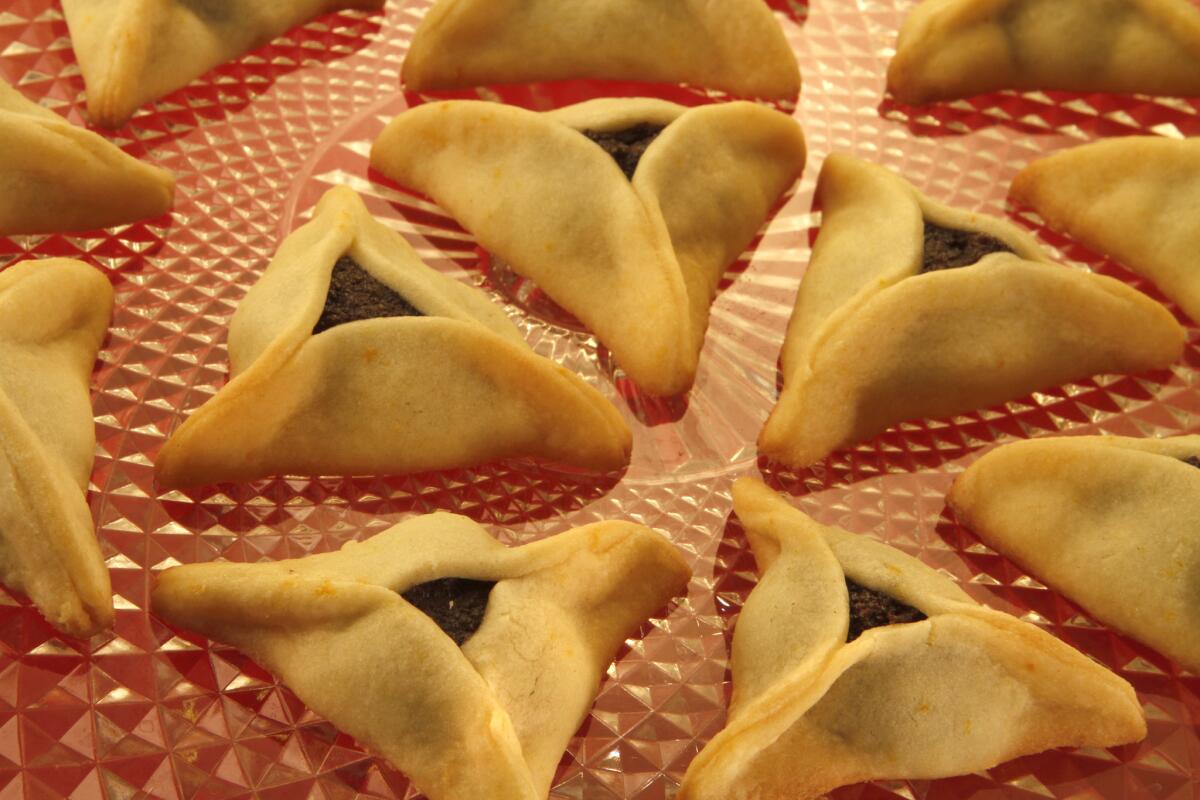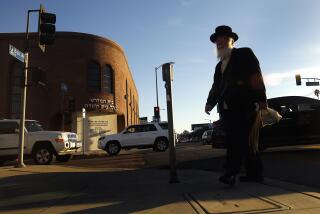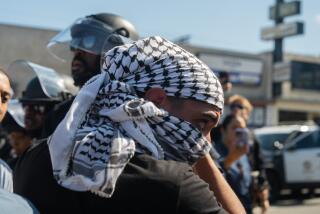L.A.’s Jewish congregations wrestle with Purim celebrations amid coronavirus fears

- Share via
Some canceled children’s carnivals. Others called off costume balls. But as the raucous Jewish holiday of Purim begins Monday night, many in L.A.’s largest Orthodox enclave remain torn over how to balance sacred rituals with public health precautions after a member of the tight-knit community tested positive for COVID-19.
Rabbis at several L.A. County congregations said they learned of the case from public health officials, who told them the man contracted the novel coronavirus at the American Israel Public Affairs Committee conference in Washington, D.C., last week.
By Saturday morning, synagogues in Pico-Robertson were abuzz with the news, raising fears that the upcoming holiday could hasten the spread of the disease in the densely populated district.
“We’re trying to manage the delta between vigilance and panic,” said Rabbi Adam Kligfeld of Temple Beth Am, a large Conservative congregation whose Purim events are especially popular among young families. “As of now, nothing is canceled. We’re encouraging people to come.”
Purim celebrates the story of Queen Esther, the Jewish consort of a 5th century Persian emperor who risked her life to thwart a genocidal plot. The central religious obligation is to hear the story read aloud — once in the evening and once the following day — at an event that traditionally involves packed crowds, rowdy participation, elaborate costumes and lots of alcohol. Other requirements include gift exchanges and a wine-soaked festive meal.
So far, local rabbis have said they will preserve those rites, albeit with care. Many are livestreaming public readings for those who can’t attend, whether because they feel sick or scared.
B’nai David-Judea, a large Orthodox congregation in Pico-Robertson, will send clergy out to read to the elderly, while Beth Jacob, an equally large Orthodox synagogue just across the border in Beverly Hills, has barred congregants from shaking hands. Temple Beth Am will serve its festive meals shrink-wrapped.
But as precautions intensified around rituals on Monday, the fate of many wild parties and boisterous carnivals remained unclear.
“We have decided that it is prudent to cancel our Purim Carnival Monday night, particularly considering that it involves significant social interaction and it is not obligatory,” Rabbi Kalman Topp wrote in an email to members of Beth Jacob Congregation on Sunday night.
Yet less than a mile away, Beth Am’s carnival went ahead.
“With the Purim carnival [Sunday] we went back and forth whether or not to cancel it, and it was packed,” Kligfeld said. “It was overflowing.”
Clergy and families on both sides of the debate emphasized that no one synagogue could hope to contain the spread.
“The Jewish community is very fluid,” said Rona Karp, who brought her two children to the Beth Am carnival Sunday but was “on the fence” about Monday night’s events. “Even if you’re a member at Beth Am you could have gone to a bat mitzvah at B’nai David and that night went to [evening prayers] at Beth Jacob because you were nearby. You could unintentionally be at four shuls on one Shabbat — and on Purim people want to go to all the different events.”
For many, the enclave’s rich communal life is its primary attraction. Those who pray regularly at multiple synagogues are as common as those who attend only one, and large multifamily meals are a cherished weekly custom.
“It could be that many of us have it and don’t know it,” Kligfeld said. “I’m sure there is anxiety out there, but right now we are not getting it.”
More to Read
Sign up for Essential California
The most important California stories and recommendations in your inbox every morning.
You may occasionally receive promotional content from the Los Angeles Times.














